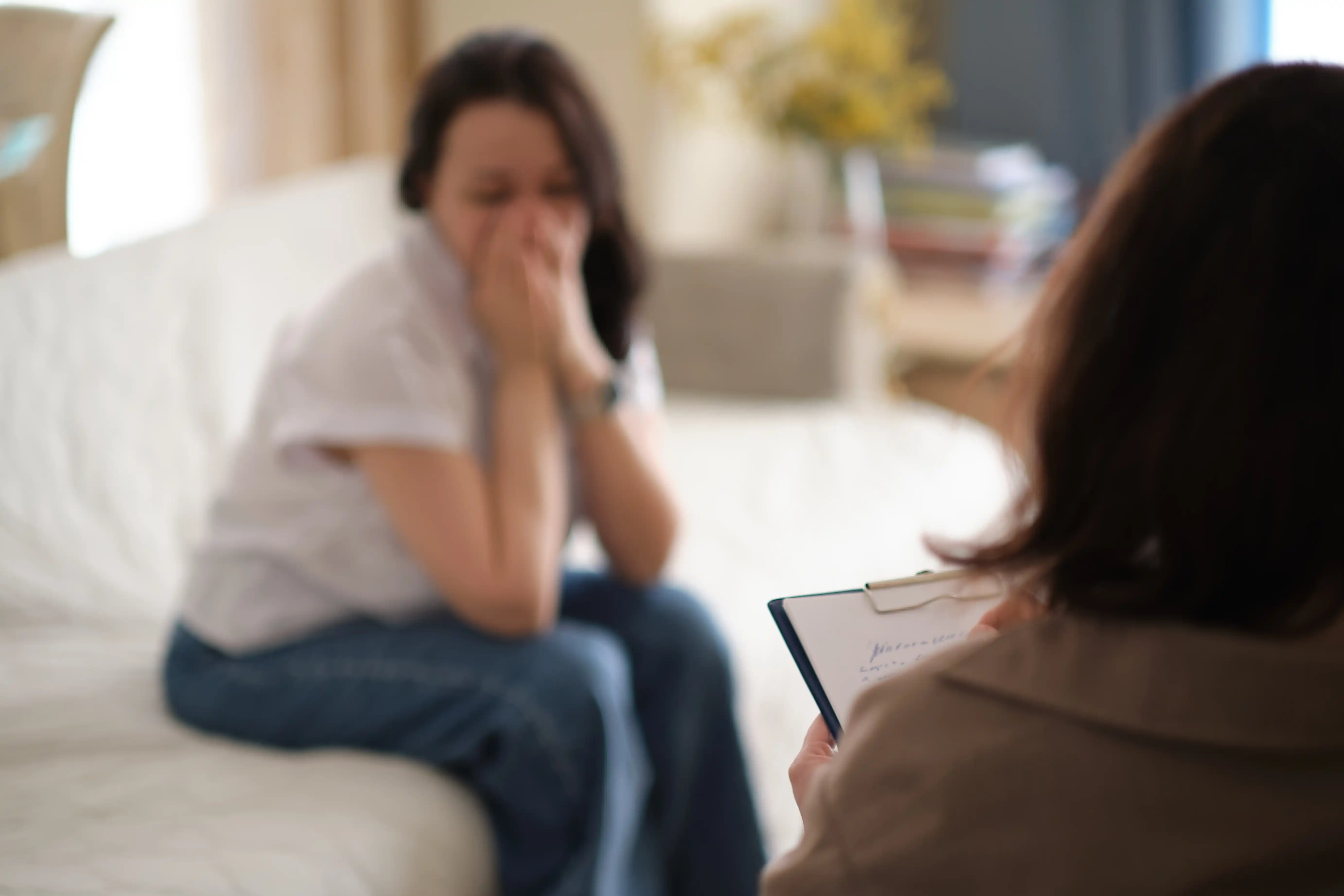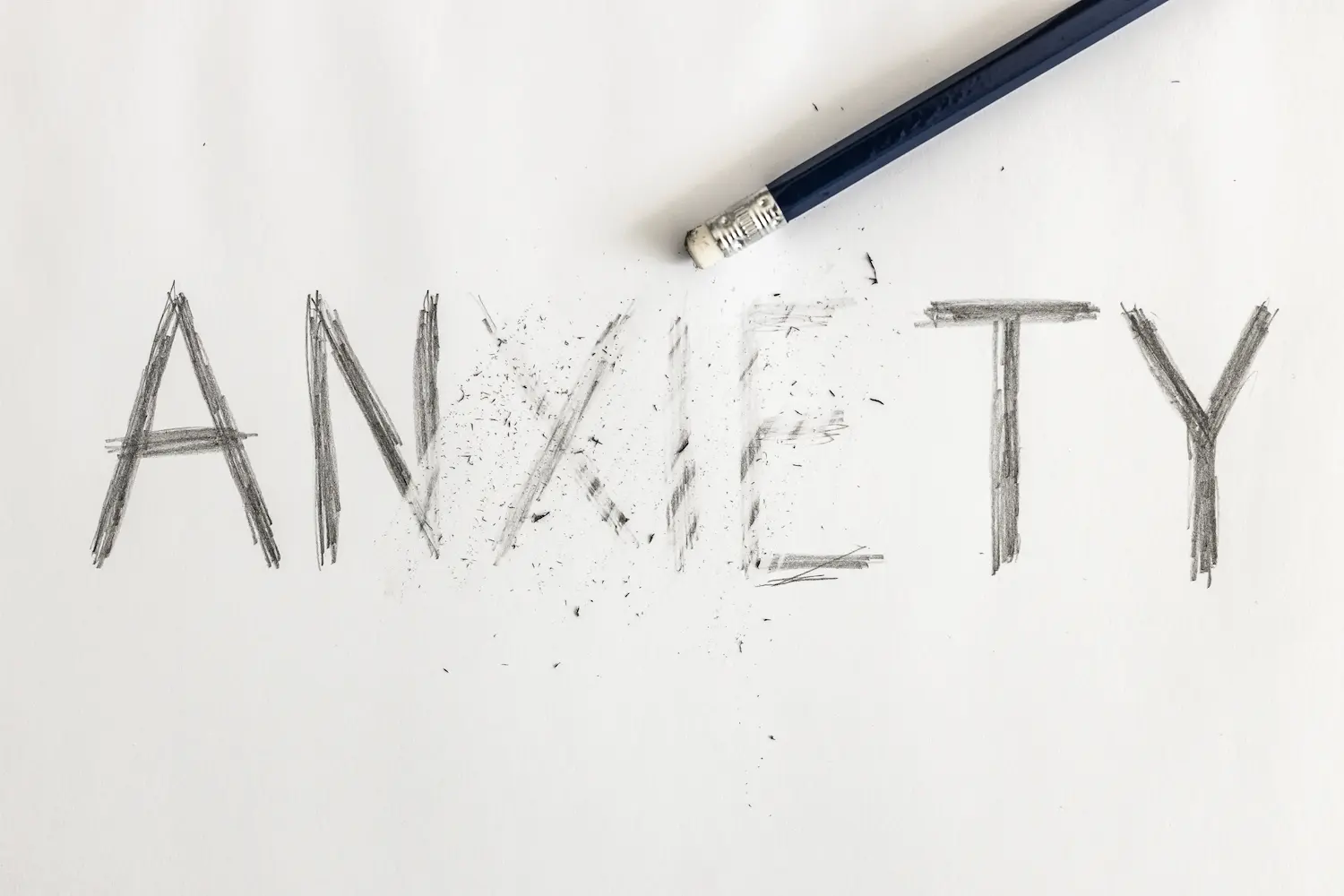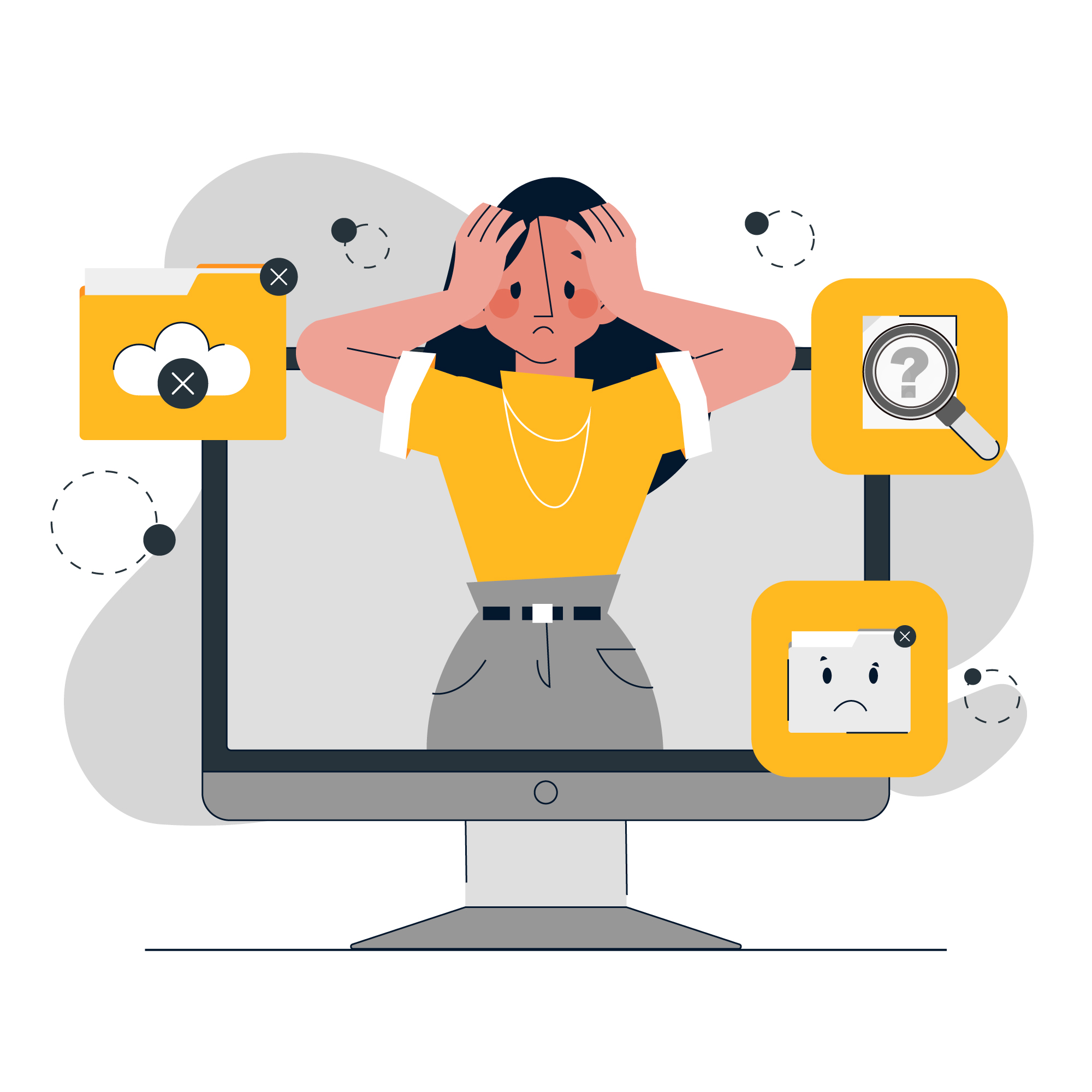Understanding Anxiety: The Meaning, Symptoms, and Strategies to Overcome It

In a world where the pace of life seems relentless, and the pressure to succeed is constant, it’s easy to feel like you’re barely holding it together. You may be juggling work, relationships, and personal growth while still carrying an invisible weight that holds you back. That weight often has a name: anxiety. Anxiety isn’t just a fleeting worry or a stressful moment before a big event. It can manifest as an ever-present cloud, influencing your thoughts, emotions, and actions.
Understanding your anxiety is the first step toward reclaiming your peace of mind. When you know what anxiety is, why it happens, and how it shows up in your daily life, you can begin to manage it rather than being managed by it. You don’t have to live at the mercy of your anxiety. Learning more about it means taking the first step toward a lighter, more fulfilling life. And we’re here to walk that path with you.
What Is the Meaning of Anxiety?
Anxiety is more than just a feeling, and it is a persistent state of unease, often accompanied by intrusive thoughts and physical symptoms that can disrupt everyday life. At its core, anxiety is your body’s natural response to stress, a survival mechanism designed to keep you alert to danger. However, in today’s modern world, anxiety often becomes a constant presence, even when there is no immediate threat.
Understanding the meaning of anxiety is the first step toward regaining control. By recognising it for what it is — a response that has gone into overdrive — you can begin to untangle yourself from its grip and develop healthier ways to cope. You are not weak or broken; you are human, and you have the power to manage this.
Common Types of Anxiety Disorders
Generalised Anxiety Disorder (GAD)
Generalised Anxiety Disorder is like having a mind that refuses to stop worrying, even when there is no logical reason to do so. With GAD, you might find yourself constantly anxious about your job, finances, health, or relationships. It feels like your brain is always scanning for potential problems, creating “what if” scenarios that drain your energy and cloud your perspective. You may experience restlessness, fatigue, difficulty concentrating, and muscle tension.
Social Anxiety Disorder
Social Anxiety Disorder goes beyond feeling shy or introverted. It is a deep fear of being judged, embarrassed, or scrutinised by others in social situations. You may worry for days before a social event, imagining how things could go wrong. Once there, your mind may race, your heart pound, and you might feel the urge to escape. Simple interactions like ordering a coffee, speaking in a meeting, or joining a conversation can feel overwhelming.
Panic Disorder
Panic Disorder is characterised by sudden and intense episodes of fear known as panic attacks. These attacks often come without warning and can be terrifying, with symptoms that may include a pounding heart, shortness of breath, dizziness, and a feeling of impending doom. During a panic attack, you might feel like you’re losing control or even dying. The experience is so overwhelming that it can leave you feeling shaken long after the episode has passed.
Specific Phobias
Specific phobias are intense, irrational fears of certain objects, situations, or activities. It could be a fear of flying, heights, spiders, needles, or enclosed spaces. While the feared object or situation may seem harmless to others, for someone with a specific phobia, encountering it can trigger overwhelming anxiety or even a panic attack. The reaction is often immediate and difficult to control, making avoidance seem like the only option.
Symptoms of Anxiety
Physical Symptoms
Anxiety often shows up in your body before it even registers in your mind. You may feel your heart pounding in your chest, your palms sweating, or an uncontrollable tremble in your hands. Sometimes, it feels like you can’t catch your breath, as if a weight is pressing down your chest. These physical sensations are your body’s fight-or-flight response kicking into high gear, even when there’s no immediate danger. They can be distressing, making you wonder if something is seriously wrong with you. Knowing that these symptoms are a part of anxiety can help you realise that you’re not in immediate physical danger — your body is just trying to protect you.
Emotional and Cognitive Symptoms
Anxiety doesn’t just affect how you feel; it affects how you think. Persistent worry can run through your mind like an endless loop, making it hard to focus on anything else. You may experience a sense of dread or a fear that something terrible will happen, even when everything seems fine. This constant state of worry can make you irritable or on edge, as though you’re waiting for the other shoe to drop. It’s exhausting to feel trapped in your thoughts, but recognising these patterns can help you take the first steps toward managing them.
Behavioural Symptoms
When anxiety takes hold, you may start avoiding situations or activities that trigger those anxious feelings. For example, you might skip social events, avoid work responsibilities, or shy away from anything that makes you feel exposed or vulnerable. You may also find yourself restless, pacing, or unable to sit still for long periods. Difficulty concentrating becomes a daily battle as your mind keeps returning to your worries. These behaviours can create a cycle where anxiety limits your life, but awareness of these patterns can empower you to reclaim those parts of your world slowly.
Effective Strategies to Overcome Anxiety
Practising Mindfulness and Meditation
Mindfulness and meditation practices offer a way to step off the treadmill of constant overthinking. By focusing on the present moment, you can give your mind a break from anxiety’s relentless chatter. Simple techniques, like paying attention to your breath, observing your surroundings without judgment, or engaging in a guided meditation, can anchor you when your thoughts spiral out of control. These practices train your brain to stay present, helping you realise that the current moment is often safer and more manageable than your anxious thoughts suggest.
Cognitive Behavioural Therapy (CBT)
Cognitive Behavioural Therapy (CBT) helps you understand how your thoughts influence your emotions and behaviours. Anxiety often thrives on distorted thinking — like assuming the worst-case scenario or believing that you’re incapable of handling a challenge. CBT guides you to identify these negative thought patterns and replace them with more balanced, realistic ones. For example, instead of thinking, “I’m going to fail this presentation,” CBT helps you reframe it to, “I’ve prepared well, and I can handle this.” This shift in thinking doesn’t just reduce anxiety; it empowers you to face challenges with more confidence and clarity.
Regular Physical Exercise
Exercise isn’t just for your body — it’s a powerful tool for your mind. Physical activity releases endorphins, which are natural mood boosters that help reduce anxiety. Whether it’s a brisk walk, a yoga session, or a gym workout, movement can help burn off the excess energy that anxiety generates. Exercise also helps regulate your breathing and heart rate, calming your nervous system. The key is consistency, not intensity. You don’t need to become a fitness guru overnight; even 20 minutes daily can make a noticeable difference in your mood and anxiety levels.
Building a Support System
Anxiety often feels isolating, but you don’t have to face it alone. Surrounding yourself with people who understand and support you can make a difference. Sharing your struggles with a trusted friend, family member, or therapist can lighten the emotional load. Sometimes, just knowing that someone is there to listen without judgment can ease the intensity of your anxiety. Empathy and understanding from others remind you that your experiences are valid and that help is available. You are not a burden — your feelings matter, and seeking support is a courageous step toward healing.
Breathing and Relaxation Techniques
When anxiety strikes, your breath can become shallow and rapid, adding to your sense of panic. Breathing and relaxation techniques are simple yet powerful tools to calm your nervous system. Try the 4-7-8 method: inhale through your nose for 4 seconds, hold for 7 seconds, and exhale slowly for 8 seconds. This helps slow your heart rate and distract you from anxious thoughts. Progressive muscle relaxation, where you tense and release each muscle group, can also ease physical tension. These techniques are portable — you can use them anytime, anywhere — offering a lifeline when anxiety feels overwhelming.
Can You Live a Normal Life with Anxiety?
You can still live a normal and fulfilling life with anxiety. While anxiety can feel overwhelming at times, it doesn’t have to control your every moment. Many people successfully manage their anxiety and continue to work, build relationships, pursue passions, and find joy. The key lies in understanding your anxiety, recognising its triggers, and adopting strategies to manage it, such as mindfulness, therapy, exercise, relaxation techniques, or even finding a new hobby.
Progress may take time, and some days will be harder than others, but with self-compassion and consistent effort, you can create a balanced life where anxiety is just one part of your story — not the defining chapter.
When to Seek Professional Help for Anxiety?
If anxiety is interfering with your ability to function in daily life, it’s time to seek professional help. Persistent worry, physical symptoms like a racing heart or shortness of breath, disrupted sleep, and avoiding activities due to fear are all signs that anxiety may need professional support.
A therapist or counsellor can help you explore the root of your anxiety and provide techniques to manage it, such as Cognitive Behavioural Therapy (CBT) or relaxation strategies. In some cases, a psychiatrist may recommend medication to help alleviate severe symptoms.
Additionally, working with a professional life coach can offer valuable guidance and practical tools to set goals, manage stress, and develop healthier habits. A coach can help you build confidence, create a personalised plan for managing anxiety, and hold you accountable in a supportive and non-judgemental way.
- August 2025
- July 2025
- June 2025
- May 2025
- April 2025
- March 2025
- February 2025
- January 2025
- December 2024
- November 2024
- October 2024
- September 2024
- August 2024
- July 2024
- June 2024
- May 2024
- December 2023
- November 2023
- August 2023
- July 2023
- June 2023
- May 2023
- April 2023
- March 2023
- February 2023
- January 2023
- December 2022
- November 2022
- October 2022
- September 2022
- August 2022
- July 2022
- June 2022
- May 2022
- April 2022
- March 2022
- February 2022
- January 2022
- December 2021
- November 2021
- October 2021
- September 2021
- August 2021
- July 2021
- June 2021
- May 2021
- April 2021
- March 2020
- February 2020
- January 2020
- December 2019
- November 2019
- October 2019
- September 2019
- August 2019
- July 2019
- June 2019
- May 2019
- April 2019
- March 2019
- February 2019
- January 2019
- December 2018
- November 2018
- October 2018
- September 2018
- August 2018
- July 2015
- May 2014









